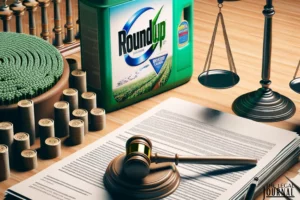Understanding the $1.5 Billion Monsanto Roundup Verdict and Its Legal Impact
In a landmark decision that has reverberated through the legal and corporate world, Bayer AG’s Monsanto unit was recently ordered by a Missouri jury to pay more than $1.5 billion in damages. This verdict marks a significant moment in the ongoing litigation over the safety of Monsanto’s popular weedkiller, Roundup. The case, involving three former users who developed non-Hodgkin’s lymphomas, highlights the complex interplay between corporate responsibility, public health concerns, and legal accountability.
In a landmark decision that has reverberated through the legal and corporate world, Bayer AG’s Monsanto unit was recently ordered by a Missouri jury to pay more than $1.5 billion in damages. This verdict marks a significant moment in the ongoing litigation over the safety of Monsanto’s popular weedkiller, Roundup. The case, involving three former users who developed non-Hodgkin’s lymphomas, highlights the complex interplay between corporate responsibility, public health concerns, and legal accountability.
Key Points:
- A Missouri jury ordered Bayer’s Monsanto unit to pay over $1.5 billion to three former Roundup users, linking the product to their cancers.
- The verdict is one of the largest in the five-year litigation involving Roundup and its alleged carcinogenic effects.
- Bayer challenges the verdict, citing regulatory decisions affirming Roundup’s safety, but faces growing legal battles.
- The punitive award in this case is likely to be reduced on appeal, adhering to U.S. Supreme Court guidelines on such damages.
- Bayer confronts a resurgence of lawsuits, raising concerns about the ongoing legal and financial implications for the company.
The Significance of the $1.5 Billion Verdict
This recent judgment stands as one of the most substantial trial losses for Monsanto in a series of litigations stretching over five years. The substantial punitive damages, totaling $1.5 billion, reflect a growing trend in the U.S. legal system where juries hold corporations accountable for public health risks. However, this verdict may face reductions on appeal, as U.S. Supreme Court rulings often limit punitive awards to a maximum of ten times the actual damages awarded.
Bayer, which acquired Monsanto in 2018, has voiced its intention to challenge the verdict. The company’s officials argue that U.S. judges have permitted a mischaracterization of regulatory decisions on Roundup’s safety, leading to adverse outcomes in recent trials. Despite these setbacks, Bayer remains adamant about the safety of glyphosate, Roundup’s main ingredient, a stance supported by the U.S. Environmental Protection Agency and recent federal court decisions.
This verdict signals potential challenges for Bayer as it navigates a complex legal landscape. The company faces a new wave of lawsuits, not just over Roundup but also concerning other legacy Monsanto products. These ongoing legal battles pose significant financial and reputational risks to Bayer, potentially affecting its strategic decisions and investor relations.
As legal professionals and the general public grapple with the implications of this case, it underscores the importance of informed advocacy and a thorough understanding of the legal system. This verdict not only impacts the parties involved but also sets a precedent that could influence future litigation related to public health and corporate accountability.
The Monsanto Roundup verdict is more than a legal decision; it represents a critical juncture in the discourse surrounding corporate responsibility and public health. As the legal saga unfolds, it will undoubtedly shape the landscape of mass tort litigation and corporate conduct in the years to come.
Citations:
- Feeley, J. (2023, November 18). Monsanto Ordered to Pay $1.5 Billion in Roundup Case. Bloomberg. Bloomberg Article
- U.S. Environmental Protection Agency. EPA Website
- U.S. Supreme Court. Supreme Court Rulings






